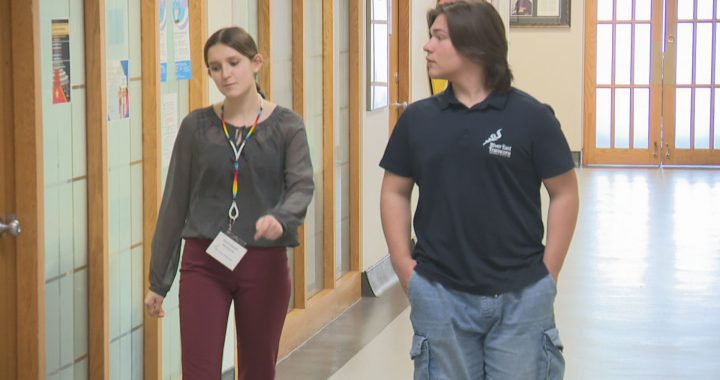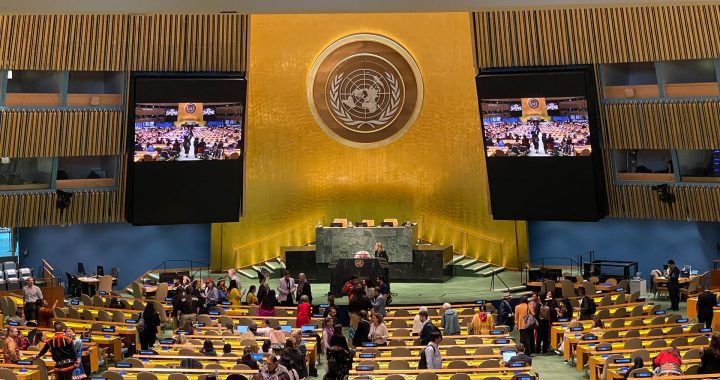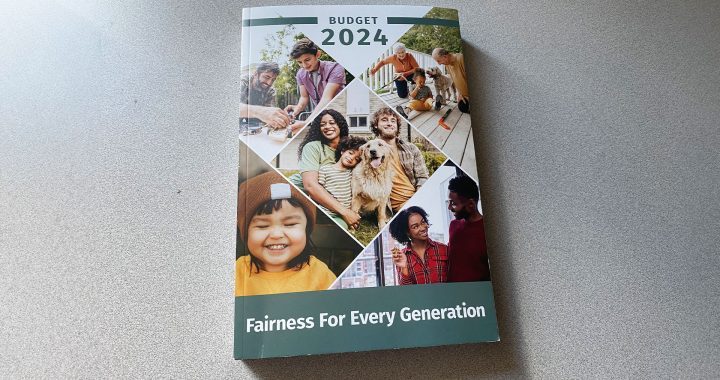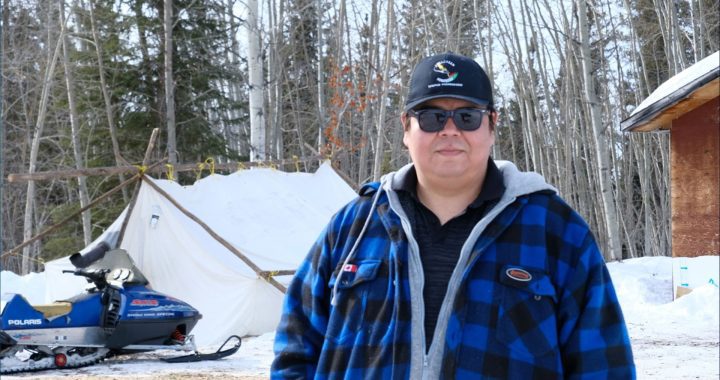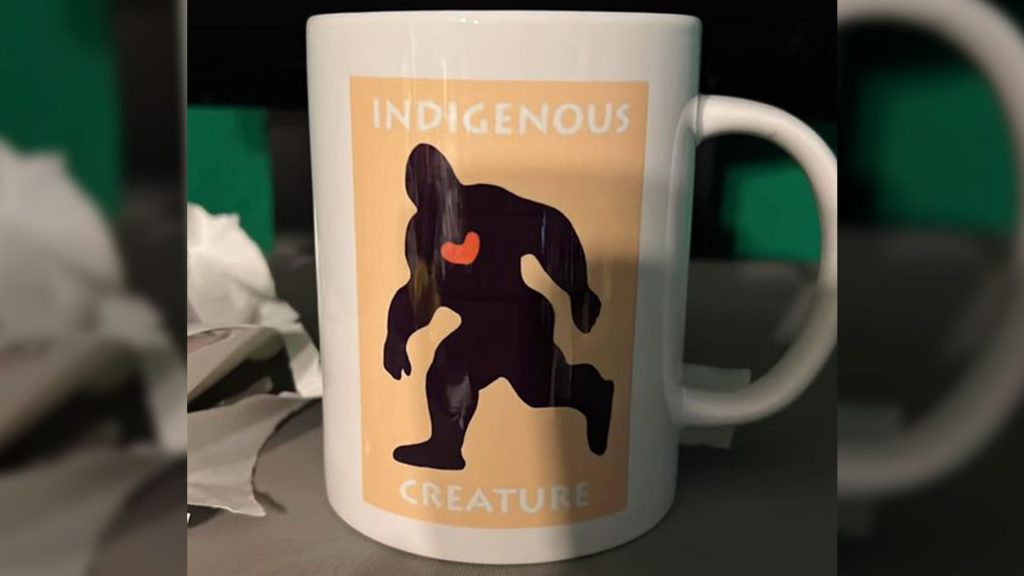
A coffee mug is just one of the 'Indigenous Creatures' creations from Jennifer Spence after the incident on ABC News. The artwork was done by Isaac Murdoch. Photo: Jennifer Spence.
A slip-up by an American news anchor has launched a series of memes and products aimed at the gaffe.
On Nov. 3, Kyra Phillips, a news anchor on ABC in the United States, was introducing a story about Native Americans making waves in the film industry.
“Celebrating Native American Heritage Month, when we come back we’ll take a look at Indigenous creatures taking Hollywood and pop-culture by storm,” Phillips said on the broadcast.
A week or so later, Phillips tweeted an apology for her mistake.
“Last Thursday I was introducing an important story about Hollywood Indigenous creators. In a moment on live TV, I accidentally misspoke. I apologize for the hurt that the mistake has caused,” she said in the tweet.
“As the longtime “big sister” to the Oneida Nation, whom I love very much, I feel strongly about covering the Indigenous community and will continue to do so.”
The story was part of ABC’s recognition of Native American Heritage Month. Her words sparked a firestorm of humour, debate and criticism.
It also fired the imaginations of many Indigenous creators who responded by making everything from memes to mugs and clothing, all relating to “Indigenous Creatures.” Some are even using it in their business plans.
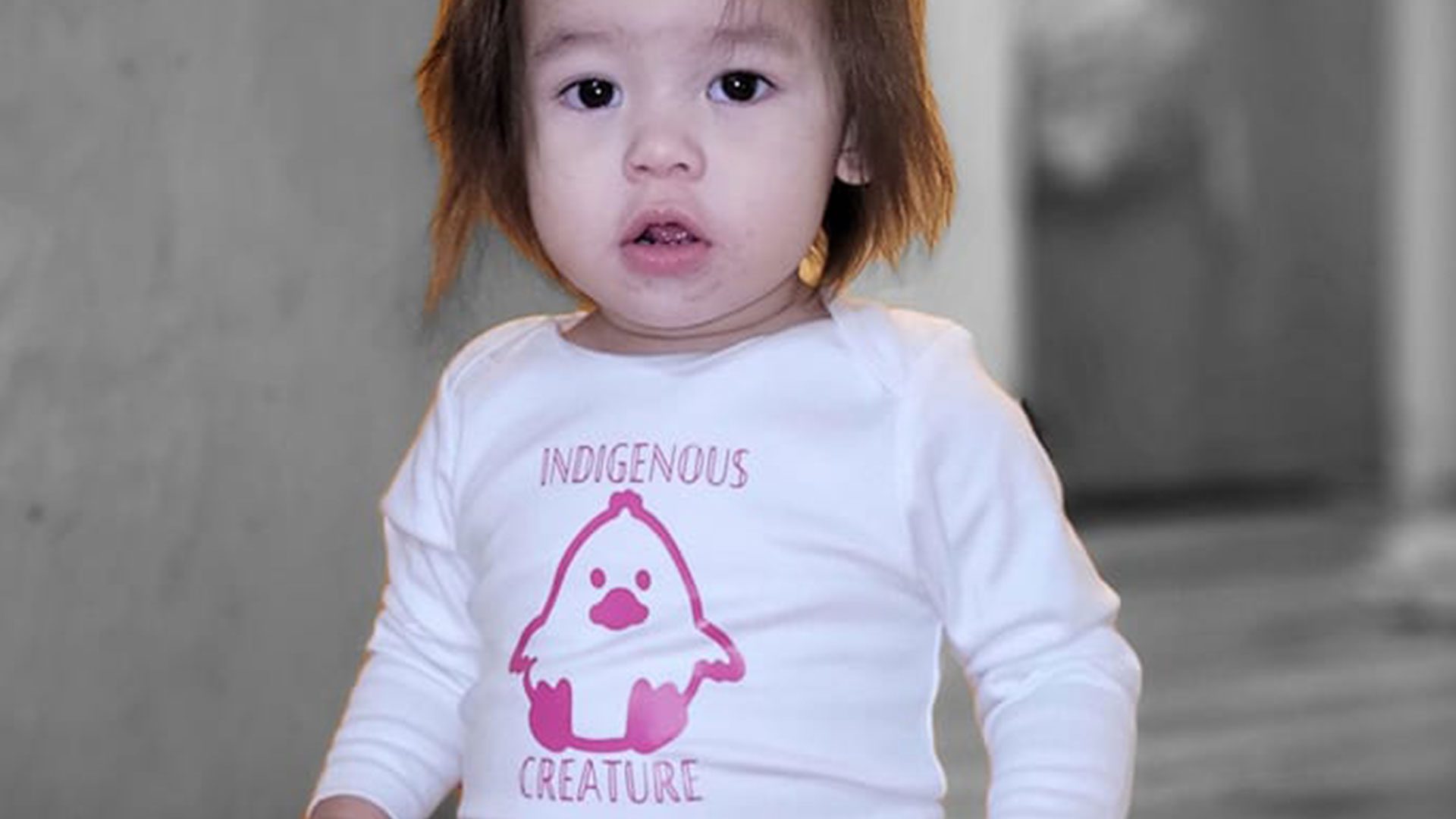
Tina Pelletier is one of them. She’s a former director of communications for the Federation of Sovereign Indigenous Nations and Prince Albert Grand Council in Saskatchewan. Pelletier recently set out on her own and is selling “Indigenous Creature” products to promote her new consulting business.
In a LinkedIn post, Pelletier said she is calling her new enterprise Indigenous Creature Communications.
“Indirectly, the memes offer social commentary on the tenuous relationship between Indigenous people and the mainstream media,” she wrote. “As one of the few Indigenous professionals in the field of communications, I’m appropriating this meme as my own, because cross-cultural education and advocacy underpin my work, and I find that this lighthearted reaction by the FN masses illuminates our creativity and sense of humour in a way that is not only empowering but unifying.”
NAJA weighs in
But on the other side of the issue – serious ethical conversations were had about the words that were spoken.
Francine Compton, a former producer at APTN News and the current president of the board of the Native American Journalists Association (NAJA) said that as funny as some of the memes and products are, there’s a serious message too.
“Media should not do harm to the communities that it’s trying to cover, and we discussed why people responded so swiftly and in the masses,” said Compton, a member of Sandy Bay Ojibway First Nation in Manitoba.
“And really, we’re not used to seeing ourselves, our stories, our communities, we’re not used to seeing that on mainstream media, especially with these big major American outlets. So, when these mistakes happen, that’s one reason they get so much attention from our people.”
Compton said while NAJA has had to reach out to major news outlets about their coverage of Indigenous stories in the past, this is the first time it’s seen a major network step up and take responsibility for its mistake.
“To each of these outlets, each time we’ve had these conversations, I’ve told them, I said ‘a mistake is a gift, and it’s up to you to choose what you do with the gift that you’ve received.’ I commend ABC and their anchor for taking it as seriously as we did, by posting an apology on her Twitter account.”
Compton said NAJA looks forward to educating more news outlets on how to cover Indigenous people and issues.






